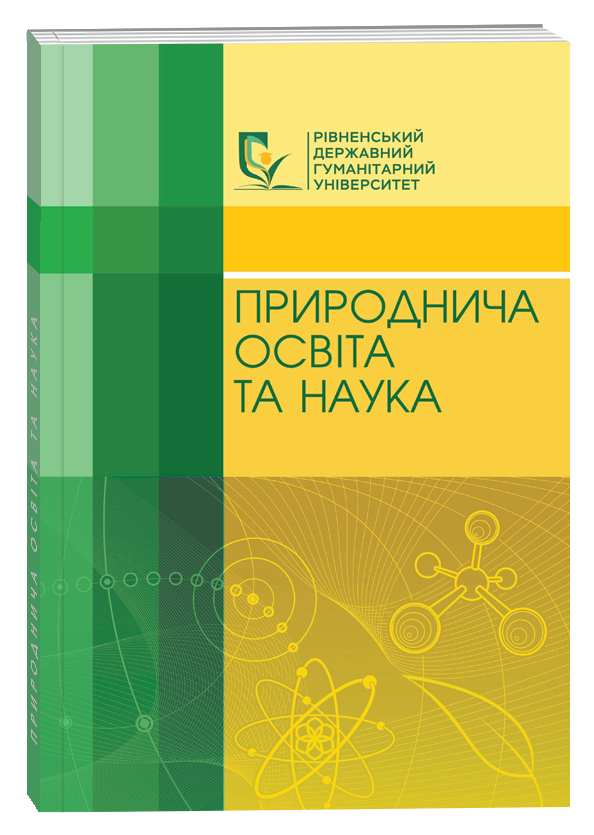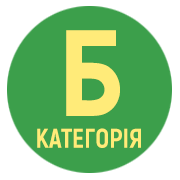QUALITATIVE TASKS AS A TOOL FOR THE FORMATION OF CRITICAL THINKING IN THE PROCESS OF COMPETENCE-BASED LEARNING OF PHYSICS
Abstract
This article explores the role of qualitative physics problems as a tool for developing critical thinking skills within the framework of competency-based physics education.The study analyzes the significance of qualitative problems in shaping subject-specific competence and its key components—motivational-value, cognitive, operational, and personal. It also examines the impact of such problems on students' ability to think critically. Various methods for solving qualitative problems are considered, including heuristic, experimental, and graphical approaches, as well as the keyword identification method and proof by contradiction. For each method, examples of qualitative physics problems are provided to illustrate their practical application.The heuristic method is presented through the "brainstorming" technique, detailing its key stages: preparation, idea generation, idea development and combination, evaluation and selection, practical implementation, and final analysis. The experimental method, which is a fundamental requirement of the New Ukrainian School (NUS), is exemplified by tasks involving both free-choice and fixed-equipment experiments. Thegraphical method is demonstrated through the analysis of measurement-dependent graphs obtained usingthe PhET virtual laboratory. The keyword identification method is explained through problem examples that highlight the importance of identifying key aspects to simplify analysis. Finally, proof by contradiction is illustrated through a structured algorithm applied to problems requiring logical reasoning and refutations.The study demonstrates that the use of qualitative problems into physics instruction fosters analytical and synthetic thinking, encourages a comprehensive approach to problem-solving, fosters the ability to ask the right questions, conduct objective result evaluations, and interpret data, while also enhancing creative and flexible thinking.The diverse problem-solving methods presented in this article provide physics teachers with practical tools for integrating qualitative problems into the learning process, ultimately contributing to the development of critically thinking and competent graduates.
References
2. Ostapovych N., Ostapovych O., Mazurenko Y. Brainstorming game technologies in the teaching practice of higher education institutions. Educological discourse. 2023. Vol. 41, no. 2. Doi:10.28925/2312-5829.2023.210 (date of access: 09.02.2025).
3. Park M. Students’ problem-solving strategies in qualitative physics questions in a simulation-based formative assessment. Disciplinary and Interdisciplinary Science Education Research. 2020. 2(1). Doi: 10.1186/s43031-019-0019-4
4. Багрій К. Л. «Мозковий штурм» як засіб активізації навчання у вищій школі. Вісник Чернівецького торговельно-економічного інституту. Економічні науки. 2018. І–ІІ (69–70). С. 159–163. URL: http://rps.chtei-knteu. cv.ua:8585/jspui/bitstream/123456789/685/1/25Багрій.pdf.
5. Владов С., Рудь Ю. Гендерні стереотипи та їх вплив на STEM-освіту: аналіз, виклики та перспективи з погляду нових горизонтів державної безпеки України. Міжнародна та національна безпека: теоретичні і прикладні аспекти : матеріали VІІІ Міжнар. наук.-практ. конф., м. Дніпро, 15 берез. 2024 р. Дніпро, 2024. С. 353–355. URL: https://dspace.univd.edu.ua/server/api/core/bitstreams/56541272-f1a1-40ca-99b8-72ac8d538062/content.
6. Войтків Г., Яблонь Л. Формування навчально-предметної компетентності учнів основної школи з фізики засобами STEM-технологій. Освітні обрії. 2020. Т. 51, № 2. С. 43–48. Doi: 10.15330/obrii.51.2.43-48 (дата звернення: 11.11.2024).
7. Енергія Скейт парк. PhET: Free online physics, chemistry, biology, earth science and math simulations. URL: https://phet.colorado.edu/sims/html/energy-skate-park/latest/energy-skate-park_all.html?locale=uk (дата звернення: 25.11.2024).
8. Козинець І. І., Журавель М. О. Переваги та недоліки «мозкового штурму» під час колективного обговорення проблем. Bulletin of Alfred Nobel University. Series "Pedagogy and psychology". 2016. № 11. С. 240–244. Doi:10.32342/2522-4115-2016-0-11-240-244 (дата звернення: 09.02.2025).
9. Кузьмін В., Хміль О., Воронюк І. Технології мозкового штурму як інструмент для підвищення мотивації до навчання здобувачів вищої освіти. Науковий вісник Вінницької академії безперервної освіти. Серія «Педагогіка. Психологія». 2023. № 4. С. 64–69. Doi:10.32782/academ-ped.psyh-2023-4.11 (дата звернення: 26.11.2024).
10. Лабораторія вивчення імпульсу. PhET. URL: https://phet.colorado.edu/uk/simulations/collision-lab (дата звернення: 26.11.2024).
11. Маси і пружини. PhET: Free online physics, chemistry, biology, earth science and math simulations. URL: https://phet.colorado.edu/sims/html/masses-and-springs/latest/masses-and-springs_all.html?locale=uk (дата звернення: 25.11.2024).
12. Мельник Ю. Класифікація задач базового курсу фізики. Проблеми сучасного підручника : зб. тез Міжнар. науково-практ. інтернет конф., м. Київ, 28–29 трав. 2020 р. Київ, 2020. С. 123–124.
13. Мельник Ю. С., Сіпій В. В. Формування предметної компетентності старшокласників у процесі навчання фізики : метод. посіб. Київ : КОНВІ ПРІНТ, 2018. 136 с. URL: https://lib.iitta.gov.ua/id/eprint/712963/1/Посібник%20формування%20предметної%20компетентності%20з%20фізики.pdf.
14. Мельник Ю. С. Задачі прикладного змісту з фізики у старшій школі : навч.-метод. посіб. Київ : Пед. думка, 2013. 120 с.
15. Новосельський М., Паламарчук В. Якісні задачі з фізики : метод. посіб. Черкаси : Черкас. облас. ін-т післядиплом. освіти пед. працівників Черкас. облради, 2013. 59 с.
16. Петруня Ю. Є., Літовченко Б. В., Пасічник Т. О. Прийняття управлінських рішень : навч. посіб. / ред.
Ю. Є. Петруня. Дніпропетровськ : Ун-т мит. справи та фінансів, 2015. 209 с. URL: https://kpdi.edu.ua/ biblioteka//П/Прийняття%20управлінських%20рішень%20Петруня%20Ю.Є..pdf.
17. Пометило С. Особливості використання експериментальних задач на сучасному уроці фізики. Формування самостійної пізнавальної діяльності учнів та студентів при вивченні фізико-математичних дисциплін : матеріали Всеукр. наук.-практ. інтернет-конф., м. Луцьк, 7–12 квіт. 2014 р. Луцьк, 2014. С. 49–52. URL: https://evnuir.vnu.edu.ua/bitstream/123456789/4076/1/Poletylo%20S.%20A..pdf.
18. Теорії прийняття рішень : курс лекцій для студентів ден./заоч. форми навчання спец. 053 «Психологія», ступінь «Маг / уклад. О. Юрков. Мукачево : МДУ, 2016. 135 с.
19. Чорнобай О. Доведення (доказ) і спростування як види аргументації. Вісник Національного університету "Львівська політехніка". Серія : Юридичні науки. 2016. № 855. С. 264–273.
20. Шокол О. Формування критичного мислення учнів у процесі розв’язування якісних задач із фізики : магістерська робота. Кривий Ріг, 2024. 71 с. URL: http://elibrary.kdpu.edu.ua/xmlui/handle/123456789/11115.






